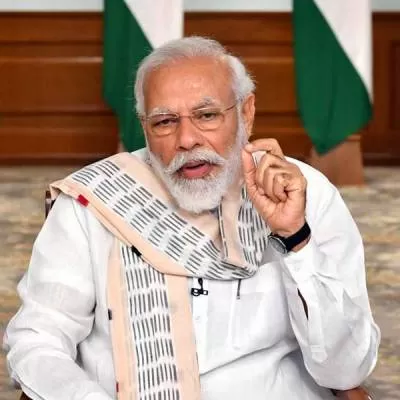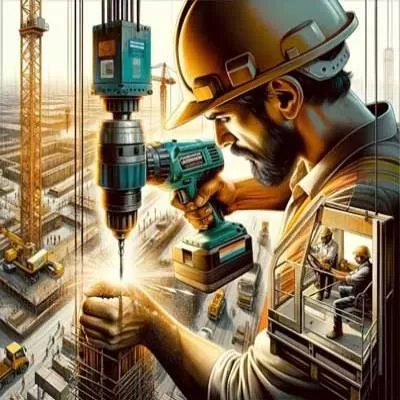- Home
- Infrastructure Urban
- ECONOMY & POLICY
- We are seeking partners to invest in Canada's infrastructure bank

We are seeking partners to invest in Canada's infrastructure bank
The Canada-India commercial relationship is growing and booming. As Nadir Patel, High Commissioner for Canada to India, says, 'In the past three years, the two-way trade is up 30 per cent and investment is up dramatically - especially from Canada to India - by almost $15 billion in the past two years.' Much of this is money going into infrastructure and long-term investments, mega projects and power plants. 'Consider the fact that we have 1,000 Canadian companies doing business in India or with India in partnership,' he adds. 'Of this, about 400 companies - a mix of large and small offices - have a physical presence in India. A year earlier, it was 900 companies, of which about 350 had a physical presence.' Testament, indeed, to the rapid growth in the relationship! In conversation with SHRIYAL SETHUMADHAVAN, Patel elaborates upon the opportunities for investments in Canada and the expertise Canadian companies are bringing to India.
How do you view the whole smart cities opportunity in India?
At present, when you look at the flagship initiatives in India, which include smart cities, infrastructure, digital India, skilling India, etc, Canada has the expertise and capacity that links up to almost every one of those initiatives. For instance, Canada is a perfect fit on smart cities. The country is the fourth largest exporter of engineering services around the world, with a strong ecosystem of success on smart cities. In fact, several Canadian companies are active in India as well - for example the complete urban city plan and strategy to make Bhubaneswar a smart city has been done by a Canadian company.
With traction in the real-estate infrastructure sector, what can we expect in terms of support from the Canadian Pension Fund?
In the past two years alone, the total stock of Canadian investments in India has been about $13-14 billion of new money; institutional investors such as Brookfield Asset Management have been among the largest investors in infrastructure in India. One can expect interest in long-term investments, which include power plants and mega infrastructure projects. There certainly is confidence in long-term development in India. Second, one can expect ongoing interest on part of the Canadian Pension Fund and other financial institutions to bring in more investments into India. So you can see more interest continuing. And, third, as investments and two-way trade linkages go hand in hand, investment is certainly coming in, further spurring job creation and two-way trade.
There have been discussions between Canada and India regarding India's Housing for All vision...
Yes, affordable housing is something we discussed not only with the Central Government but even the state governments. Canada has some unique technologies to help India in the affordable housing space, such as modular housing, wood-frame housing, and the forestry innovation initiative (in Mumbai), where we have Canadian lumber and technology on display because it can, in a way, feed into affordable housing projects as well. Capacity building is also an important area of intervention where the focus in on working with cities on bye-laws and amendments to bye-laws to enable safer ways to build housing at lower costs. So, we are working on several new initiatives, and see possible JVs as well. Indian companies are working with Canadian partners to bring technology in, so that they can work to develop low-cost housing more rapidly.
Could you tell us about the nature of the JVs being formed in India?
JVs are formed in two or three different areas. One is when you are talking about cities, housing, infrastructure - when Canadian companies come in here, having a workforce to build things rarely makes sense. So, in the case of greenfield development, there is an interest in working with an established Indian partner who has experience, the labour force and network. You can bring in the technology, work with the partner and collaborate on projects. Another angle would be investment. This could be an institutional investor - a company with expertise, product and money - who can work as a JV partner with all those working on the project. So, there are a couple of dimensions to forming JVs.
What kind of expertise are Indian companies offering to Canada at present?
Over 100 Indian companies have invested and established their base in Canada. We have Indian companies having invested or being active in the mining space, natural resources, in particular in textiles, synthetics, rubbers and different types of industrial products and goods. Interestingly enough, we are trying to showcase more of the India story in Canada and showcase more Canadian opportunities in India.
Specifically in the building infrastructure and construction space, what would be the current opportunities for Indian companies in Canada?
Significant investments are being made in Canada's infrastructure as part of replacing its ageing infrastructure and creating new infrastructure in remote areas. As a result, we have created an infrastructure bank and are seeking partners to invest in Canada's infrastructure bank. In terms of other areas of growth, there are mixed-use commercial development opportunities as well. There are many competitive advantages for actually setting up companies, factories or manufacturing operations in Canada. The country has a talented workforce and offers a low cost of living. It provides an access point for not only the North American market through NAFTA without any tariffs but the entire European Union through the Free Trade Agreement from our negotiation with Europe.
What are the challenges in the bilateral relationship?
Economic reforms are happening here. We are strong proponents of Prime Minister Modi's economic agenda and believe his initiatives are in the right direction. We would like to see them move quicker in terms of tariff reduction, free trade and trade liberalisation. We believe this should continue; there will be more opportunities to increase trade and investments both ways. Else, skilled labour has been a bit of a challenge. So, we are focusing more on educational linkages or big proponents of skilling India for that reason. We are encouraged by the reduction of red tape and improvement in ease of doing business but we still feel more can be done in that area. That said, for Canadian companies, it's much easier to do business here in India today than it was a few years ago.
To share your views on this interview, write in at feedback@ConstructionWorld.in
- Nadir Patel, High Commissioner for Canada to India The Canada-India commercial relationship is growing and booming. As Nadir Patel, High Commissioner for Canada to India, says, 'In the past three years, the two-way trade is up 30 per cent and investment is up dramatically - especially from Canada to India - by almost $15 billion in the past two years.' Much of this is money going into infrastructure and long-term investments, mega projects and power plants. 'Consider the fact that we have 1,000 Canadian companies doing business in India or with India in partnership,' he adds. 'Of this, about 400 companies - a mix of large and small offices - have a physical presence in India. A year earlier, it was 900 companies, of which about 350 had a physical presence.' Testament, indeed, to the rapid growth in the relationship! In conversation with SHRIYAL SETHUMADHAVAN, Patel elaborates upon the opportunities for investments in Canada and the expertise Canadian companies are bringing to India. How do you view the whole smart cities opportunity in India? At present, when you look at the flagship initiatives in India, which include smart cities, infrastructure, digital India, skilling India, etc, Canada has the expertise and capacity that links up to almost every one of those initiatives. For instance, Canada is a perfect fit on smart cities. The country is the fourth largest exporter of engineering services around the world, with a strong ecosystem of success on smart cities. In fact, several Canadian companies are active in India as well - for example the complete urban city plan and strategy to make Bhubaneswar a smart city has been done by a Canadian company. With traction in the real-estate infrastructure sector, what can we expect in terms of support from the Canadian Pension Fund? In the past two years alone, the total stock of Canadian investments in India has been about $13-14 billion of new money; institutional investors such as Brookfield Asset Management have been among the largest investors in infrastructure in India. One can expect interest in long-term investments, which include power plants and mega infrastructure projects. There certainly is confidence in long-term development in India. Second, one can expect ongoing interest on part of the Canadian Pension Fund and other financial institutions to bring in more investments into India. So you can see more interest continuing. And, third, as investments and two-way trade linkages go hand in hand, investment is certainly coming in, further spurring job creation and two-way trade. There have been discussions between Canada and India regarding India's Housing for All vision... Yes, affordable housing is something we discussed not only with the Central Government but even the state governments. Canada has some unique technologies to help India in the affordable housing space, such as modular housing, wood-frame housing, and the forestry innovation initiative (in Mumbai), where we have Canadian lumber and technology on display because it can, in a way, feed into affordable housing projects as well. Capacity building is also an important area of intervention where the focus in on working with cities on bye-laws and amendments to bye-laws to enable safer ways to build housing at lower costs. So, we are working on several new initiatives, and see possible JVs as well. Indian companies are working with Canadian partners to bring technology in, so that they can work to develop low-cost housing more rapidly. Could you tell us about the nature of the JVs being formed in India? JVs are formed in two or three different areas. One is when you are talking about cities, housing, infrastructure - when Canadian companies come in here, having a workforce to build things rarely makes sense. So, in the case of greenfield development, there is an interest in working with an established Indian partner who has experience, the labour force and network. You can bring in the technology, work with the partner and collaborate on projects. Another angle would be investment. This could be an institutional investor - a company with expertise, product and money - who can work as a JV partner with all those working on the project. So, there are a couple of dimensions to forming JVs. What kind of expertise are Indian companies offering to Canada at present? Over 100 Indian companies have invested and established their base in Canada. We have Indian companies having invested or being active in the mining space, natural resources, in particular in textiles, synthetics, rubbers and different types of industrial products and goods. Interestingly enough, we are trying to showcase more of the India story in Canada and showcase more Canadian opportunities in India. Specifically in the building infrastructure and construction space, what would be the current opportunities for Indian companies in Canada? Significant investments are being made in Canada's infrastructure as part of replacing its ageing infrastructure and creating new infrastructure in remote areas. As a result, we have created an infrastructure bank and are seeking partners to invest in Canada's infrastructure bank. In terms of other areas of growth, there are mixed-use commercial development opportunities as well. There are many competitive advantages for actually setting up companies, factories or manufacturing operations in Canada. The country has a talented workforce and offers a low cost of living. It provides an access point for not only the North American market through NAFTA without any tariffs but the entire European Union through the Free Trade Agreement from our negotiation with Europe. What are the challenges in the bilateral relationship? Economic reforms are happening here. We are strong proponents of Prime Minister Modi's economic agenda and believe his initiatives are in the right direction. We would like to see them move quicker in terms of tariff reduction, free trade and trade liberalisation. We believe this should continue; there will be more opportunities to increase trade and investments both ways. Else, skilled labour has been a bit of a challenge. So, we are focusing more on educational linkages or big proponents of skilling India for that reason. We are encouraged by the reduction of red tape and improvement in ease of doing business but we still feel more can be done in that area. That said, for Canadian companies, it's much easier to do business here in India today than it was a few years ago. To share your views on this interview, write in at feedback@ConstructionWorld.in




















